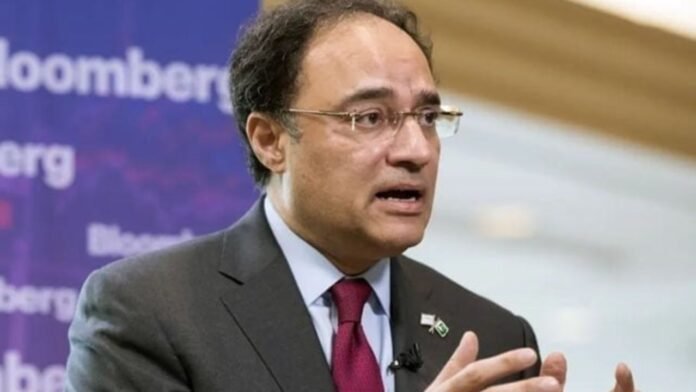Islamabad Federal Finance Minister Mohammad Orenzib rejected objections to taxes on the wealthy, stating that higher-income groups will face higher taxes. He emphasized that there should be no objections; taxes cannot increase without imposing them on the affluent Salaried Class.
The preference is economic digitalization
The preference is economic digitalization; there is no alternative but to bring everyone into the tax net,” he said. From July, we will tax retailers and wholesalers; currently, there are 90 billion rupees in circulation, and we aim to eliminate cash transactions. We have data on who owns how many cars and how much they spend on lifestyle. A team will analyze this data, followed by field teams for implementation.”
“The government is better off exiting sectors; the government must create an environment to bring the private sector forward. He said, hoping for an IMF agreement at the staff level by July.
Federal Finance Minister Mohammad Orenzib, during a post-budget press conference with the economic team, said. We will increase the tax-to-GDP ratio to 13%, with the digitalization of the economy being the government’s top priority.” He added, “The decision to increase petroleum levies will be based on global oil companies’ observations; we are monitoring transactions of global oil companies. I don’t understand the invention of nanofibers; it may not be in any other country. Tax rates on nanofilers’ businesses and transactions are increasing. Business tax transactions are being added to bring them into the tax net.”
Minister Orenzib said
Minister Orenzib said, “We have to expand the scope of taxation; a 10% tax-to-GDP ratio is unsustainable. We need to increase it to 13%, which various agencies need to improve. A minimum relief is maintained for the wealthy class; the maximum tax on the affluent class is 35%.
“31,000 retailers have registered,” he said. The tax will apply from July; it should have been implemented in 2022. The purpose of taxing retailers and wholesalers is to distribute the burden; there may be revisions in tax slabs, but there is no alternative to bringing everyone into the tax net.”
He said, “The FBR workforce has mobilized; FBR discussed fixed taxes in 2022. We will facilitate youth in the IT sector, providing them with jobs as they need employment. He also needs to finance SMEs. We will transfer the Export Refinance Facility to Exim Bank. We will complete the ongoing projects in PSDP.
The Federal Finance Minister said
Orenzib said, “There is no immediate increase in petroleum levies; they will gradually increase. We will consider oil costs in the international market. For the next fiscal year, the government will allocate a substantial amount for the Income Support Program, increasing it by 27% to 593 billion rupees.”
During the post-budget press conference, Secretary Treasury Imad Allah Bosaal said. Salary increases will be based on basic salary. Corporations and autonomous bodies implementing government pay scales will be subject to increases according to their procedures. NEPRA is an autonomous body; it will decide on pension increases.”


